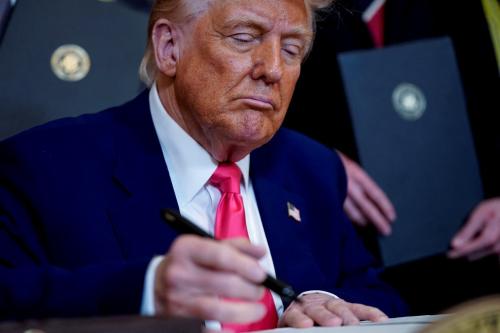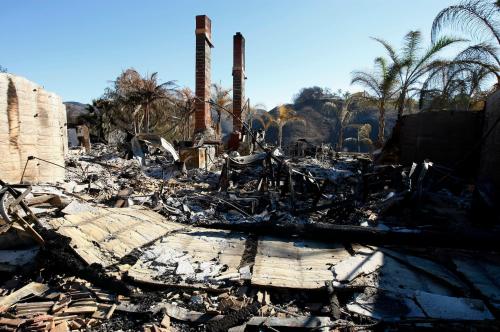On June 15, President Obama delivered the first Oval Office address of his presidency, which, in the wake of perhaps the largest ecological disaster in U.S. history, was clearly necessary. However, given the gravity of the crisis the president missed an opportunity to move the country towards a national energy plan that will over time reduce the nation’s dependence on oil in the transportation sector.
While the president emphasized measures that his administration is taking to staunch the flow of oil, use all legal powers to force BP to compensate those directly affected by the spill, and assure “that a catastrophe like this never happens again,” his speech failed to put forth tangible proposals to promote independence from oil.
The president’s support of investment in clean energy sources, such as solar, wind, nuclear and advanced biofuels, is laudable and will eventually help fuel the transition to electric vehicles. Along with the roll out of the smart grid and enhanced energy efficiency, all these fuels are imperative for providing clean electricity. However, with 246 million vehicles on the road today using gasoline and diesel fuel, and thousands of airplanes using petroleum based aviation fuel, it will take at least 30 years for this transition to have any meaningful impact on the volume of our petroleum use. Oil, which accounts for less than one percent of U.S. electricity generation, comprises nearly 70 percent of the fuels we use in the transportation sector. Consequently, decreasing our dependence on oil requires changing how we get from place to place.
To effect this change in petroleum use, we can: (1) raise the price of transportation fuels by increasing taxes on gasoline, diesel and jet fuel; (2) enact congestion fees in our major cities and busiest highways; (3) reduce perverse incentives that encourage driving, such as free or subsidized parking, which are implemented by major employers including some government agencies and international institutions; (4) enact progressive excise taxes on cars and trucks that get mileage beneath a certain regulatory standard; (5) mandate that after 2015, no car may be sold or produced in the United States that gets under 45 miles per gallon, thereby instigating automobile companies and entrepreneurs to show what they can achieve; (6) accelerate and extend tax incentives for electric vehicles, natural gas, advanced biofuels, new vehicle designs, battery technologies that allow for longer distance between charges; and (7) accelerate investment in high speed rail and other transformative transportation technologies that can accelerate a reduction in our dependency on oil.
All of the policy instruments outlined above will encounter resistance from some group of American consumers and businesses. Some of the measures, such as increasing gasoline taxes, are regressive and fall disproportionately upon our poorer citizens. While complex to address, these concerns can be addressed either through tax rebates to consumers making under $50,000 or by allowing lower income consumers a tax credit for petroleum taxes above what they were at the time of passage. The above proposals will also be opposed by consumers who live in states where people drive long distances and by urban consumers who have no options other than to drive. While some of the problems may be addressed through unique ideas developed by transportation economists, others may not be solvable, thus requiring some of us to get used to paying more for energy than we do today. Ultimately we as a society will have to decide what path is best. What we can no longer afford are vague proclamations of improvements to our energy security without clear policy prescriptions.
In the president’s inaugural address, he conceded that “that the challenges we face are real. They are serious and they are many. They will not be met easily or in a short span of time. But … they will be met.” There is no doubt that the country is facing an energy challenge, much of it coming from our dependence on oil. On Tuesday, in an unfocused and vague address, President Obama missed a rare opportunity to articulate a sorely needed concrete energy policy.
The Brookings Institution is committed to quality, independence, and impact.
We are supported by a diverse array of funders. In line with our values and policies, each Brookings publication represents the sole views of its author(s).



Commentary
Op-edA Missed Opportunity, But Still Time to Stem the Tide
June 17, 2010